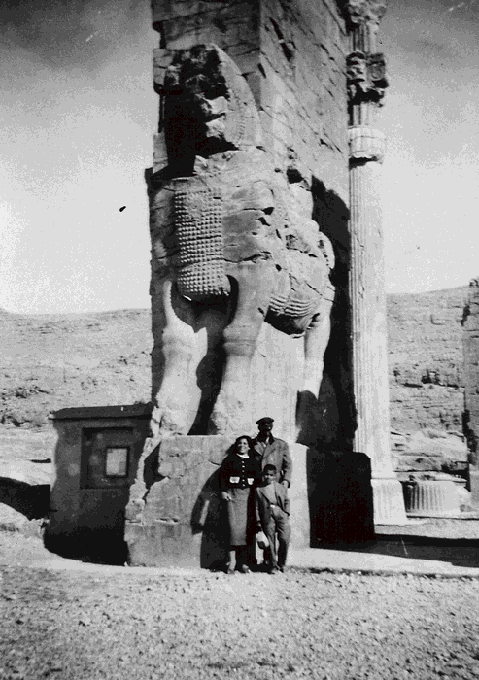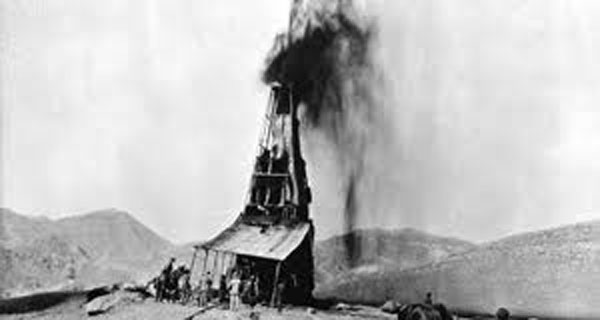

FAMILY BACKGROUND
The Al Khozan family tree reaches back in history to the tribe of Ghoraish in Mecca, Saudi Arabia and beyond, to the Prophet Ibrahim. It is an extended and highly respected family from Mecca to the steps of Khorasan and Tajikistan, and from Muscat to Andalucía.
In Saudi Arabia, the family prospered in the cities of Mecca, Jeddah and Riyadh. In Iran, the Family Tree includes the Safavi Dynasty and the famous Muslim Philosopher Mirdamad. The Khozan family ruled three vast areas: in Khorasan, now part of Turkmenistan, in Khuzestan, the area between Abadan and Bushehr, and a city with a vast farming area north of the city of Isfahan that also bears the family name. Shah Abbas appointed Housain Bin Mohammed Khalid Al Khozan as Amir of Khozan in Khuzestan in 1591, and a year later appointed Sheikh Reza, Housain’s younger brother as the Amir and Governor of Khorasan. The Amir restored the Khorasan Province by expelling the Turkmen raiders. His eldest son was appointed ambassador to Russia and then to England.
The economic base of the family stems from these vast areas of land and their cities, farms and the industries that the family developed over the centuries.
Mirdamad, whose title became part of the family name of Al Khozan, was born in 1562. He was known as “Mu’allim al Thalith” (Third Teacher) after Aristotle and Al Farabi. He was a close confidant of Shah Abbas and was married to the King’s daughter, hence the title, Mirdamad (groom of the King). He was given the title “Sheikh Al Islam” and conducted the coronation of Shah Safi in 1629. He died in Najaf in 1631. His mausoleum has over the years become a shrine, visited by both the Sunni and Shiah sects of the Muslim pilgrims. All his philosophical works, over 60 volumes, are in notoriously cryptic Arabic, following works of Abu Ali Al Housain Ibn Sina (980 – 1037).
His Excellency Dr. Abdul Ghasim Bin Muhammad Housain Mirdamad Amir Al Khozan, Ambassador to Russia, Britain and later France, established the genesis of the current corporate holdings of the family in Europe in 1853.
The Amir and William D’Arcy struck oil on May 26, 1908 at 1,180 feet (360 m) in Masjed Soleiman in a place named Maidan Naft. Anglo-Persian Oil Company was established in 1909 (later BP). The British Government opposed the names of D’Arcy or Khozan to be included in the corporate name.
In Mesopotamia (today’s Iraq), oil from the surface seepage was taken by donkey to provide domestic fuel in Turkey. In 1904 Calouste Gulbenkian wrote a report on the commercial possibilities of the oil of northern Mesopotamia, which caused Sultan Abdul Hamid to transfer these states to his own privy purse. On the eve of the First World War, the Ottoman government granted a concession to the Turkish Petroleum Company (TPC) in which Anglo-Persian Oil Company had half interest, together with Royal Dutch Shell and the Deutsche Bank. After the Second World war Iraq Petroleum Company (IPC) took over from TPC.
Today
Al Khozan family owns and manages a number of banks, property development companies, oil and mineral refineries, mining operations, shipping, insurance and manufacturing plants in a variety of industries, including pharmaceuticals, hospital equipment, radar and sonar, aerospace, software and renewable energy. These operations are based in Europe, the Middle East, South Africa and North America.
Kamran M. Khozan is the majority shareholder, Chairman and Chief Executive Officer of Khozan Holdings Inc., the holding company that oversees the operations of his family’s corporate entities and financial interests. He also manages the family’s 110-year-old charitable organization, the Mirdamadi Foundation.










